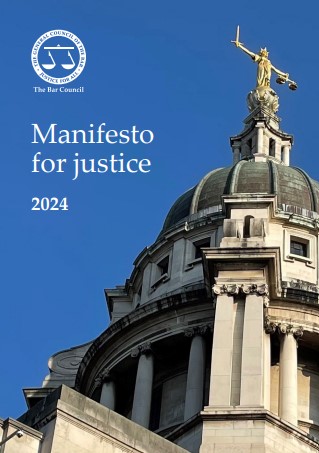
The Bar Council and Law Society have published their pre-election wishlists for the next government, ahead of next month’s general election
The Bar has called for a £2.5bn investment in justice, coupled with a ‘wholly new approach’ to justice policy. According to Bar Council calculations, spending on justice in real terms per person has fallen by 22% since 2009/10.
Its ‘Manifesto for justice’, published last week, urges whoever forms the next government to: establish a Royal Commission on the criminal justice system; ensure Crown Court trials have a start date within six months of the first hearing; invest to secure a ‘sustainable and resilient justice system that commands public trust and confidence’; and recognise the courts as a vital public service like schools and hospitals.
Bar chair Sam Townend KC said: ‘It is time for a total rethink and our manifesto sets out what we think should be the key priorities. Proper investment would, in fact, save costs across public services.’
Law Society president Nick Emmerson urged the next government to ‘place legal services at the heart of plans for economic growth, renew our commitment to the rule of law and work proactively to protect and secure access to justice’.
He pointed out the legal sector adds £60bn to the UK economy each year and employs more than one per cent of the total UK workforce.
Moreover, legal services are one of the UK’s ‘most valuable exports’, he said, with England and Wales the second-largest legal market in the world and the ‘global jurisdiction of choice for international business deals’.
He urged the next government to place legal services ‘at the heart of trade agreements’ and secure ‘greater market access and practising rights for our lawyers. It should also support domestic law firms to invest, upskill and adopt new technology.’
Emmerson also called on the post-election government to uphold the rule of law, adhere to its international commitments and invest in access to justice. He said: ‘Immediate steps it can take include increasing criminal legal aid rates in real terms by 15% and injecting £11.3m into civil legal aid for early advice to safeguard the system.’









